We may earn money or products from the companies mentioned in this post.
Planning dinner with your collaborator. Constructing a cleansing planned with your roommates. Sharing a report with your boss. Resolving your customer’s complaint.
In each of these scenarios, there are interpersonal skills at work.
You may not realize it, but interpersonal skills come into play during every interaction you have with another human.
Every. Single. One.
For some people, good interpersonal skills are a natural offering. For others, it takes some discover, mindfulness, and effort to get the hang of it.
But one thing is constant: if you have excellent interpersonal skills, all of your relationships will be better than if you didn’t!
In this article, we’re going to look closer at what these abilities are, some interpersonal skills precedents, why they’re particularly important in the workplace, and how you can improve yours if you feel that you’re lacking.
Let’s do this.

Don’t wait for someone else to do it. Hire yourself and start calling the shots.
Get Started Free
What Are Interpersonal Skills?
Interpersonal abilities are how we relate to and interact with other beings.
These abilities are a combination of personality peculiarities and demeanors that show up in pretty much every type of human interaction we have- with home, friends, colleagues, boss, and patrons. Even the cashier at the supermarket.
You may have also heard of interpersonal skills by their many other lists: social talents, parties skills, or soft sciences( sometimes even emotional ability ).
Generally speaking, if a person has strong interpersonal skills, their personal and professional relationships are smoother and easier to oversee. They’re able to communicate and empathize with others, which determines it easier to collaborate on whatever they’re doing.
There’s less conflict in those relationships because they’re able to effectively figure out what their own problems is, then work together to solve it.
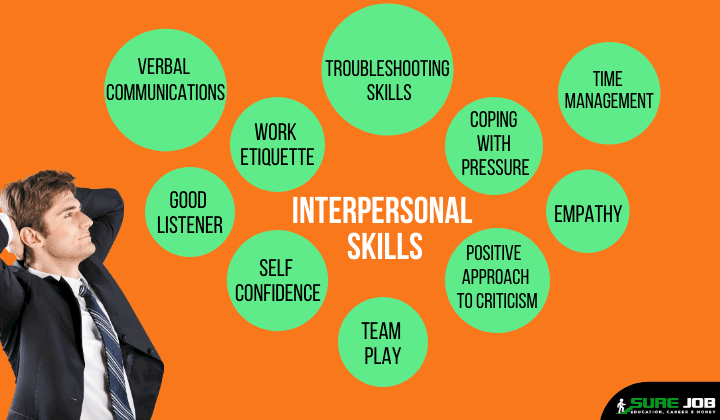
Importance of Interpersonal Skills in the Workplace
If you’ve been on the job hunt, I’m sure you’ve seen all kinds of interpersonal skills across all kinds of job schedules. Things like being an effective communicator and a good team player.
These characteristics are absolutely critical for companies to operate well. There are a lot of moving components, and often a lot of people needed to collaborate and execute on ideas and tasks.
Interpersonal sciences at work to be used to 😛 TAGENDFoster a sense of trust, brotherhood, and overall positive feelings toward is gonna work( and happier crew members are more productive team representatives !) Build stronger relationships among team members as well as with customersKeep the feedback loop open, so that everyone feels included and amazing ideas have a better occasion of being uncoveredOn the business side: reduce the time it takes to complete assignment, boosting the company’s revenueTypes of Interpersonal Skills
There are way too many interpersonal skills precedents to list here, but we’re going to go through some of “the worlds largest” 😛 TAGENDCommunicationListeningEmpathyDependabilityPatienceConflict resolving and negotiationAssertivenessTeamworkCommunication
Interpersonal communication sciences are at the top of the roll( literally and figuratively ).
Why?
You can surmount every other skill on this list, but if you can’t effectively communicate that supremacy to others, you’re still at the starting line of the race.
There are three types of communication in this umbrella 😛 TAGENDVerbal. The style you talk to others, whether it’s in person or on a Zoom call. This includes your choice of words, but likewise your tone and timing.Non-Verbal. The fluctuations and gesticulates you realize when others can see you. These might seem immaterial, but they’re astonishingly powerful when it comes to making others feel discovered, understood, and accepted by you.Written. From work reports to customer service emails, written communication is a delicate balance of getting your point across efficiently while at the same time being participating and inclusive.
Wondering how you’re doing in this area? Check out this free interpersonal communication skills research by Psychology Today.
Listening
Good interpersonal communication skills are a two-way street. You have to listen- and really understand- where others are coming from, then use those insights to shape your own response.
It might seem that listening is a passive act, but author and onetime FBI intermediary Chris Voss thinks it’s the most active thing you can do.
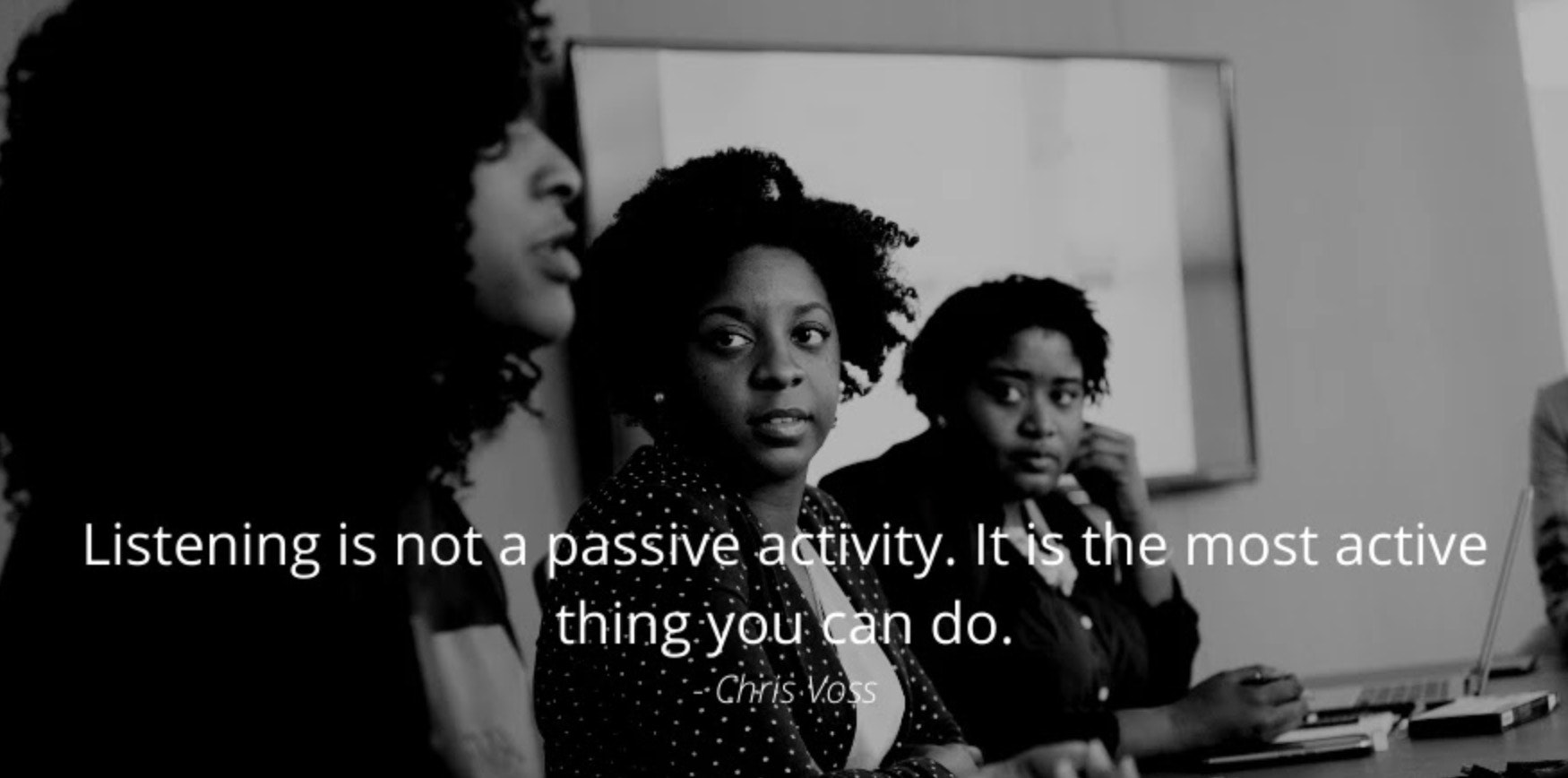
Empathy
Going a stair further than just listening, can you put yourself in the shoes of other parties? Can you try to imagine what they’re feeling and even try to share those feelings?
This is a superior interpersonal communication science, because empathetic people can look past utterances to see the true sentiments that are driving them. If you can’t connect those two points, you might have some fus understanding others.
Dependability
When you say you’ll do something, do you always follow through? Dependability is absolutely necessary to earn someone else’s trust. And trust is important for good communication and strong relationships.
This runs across the board for all types of relationships, personal and professional. People who count on you need to have faith that you’ll support them.
Patience
It’s easy to get baffled by others, like when your marriage ignores small-but-important items or your coworker stops exploding horrific music during your team scolds. But can you keep your cool? Can you focus on what’s important without losing your temper or considering other parties differently?
Annoying- even infuriating- things are always going to happen. People with excellent interpersonal skills have equanimity to work through those situations calmly and with a position head.
Conflict Resolution and Negotiation
Negotiation knowledge don’t just come in handy where there’s a crisis or serious conflict. You’re actually negotiating always, every day – it’s any kind of communication that has makes.
Even deciding where to go out to dinner with your friend is a negotiation! The key to strong mediation and settlement of conflicts is understanding the other person’s needs as well as your own, then working toward a common goal.
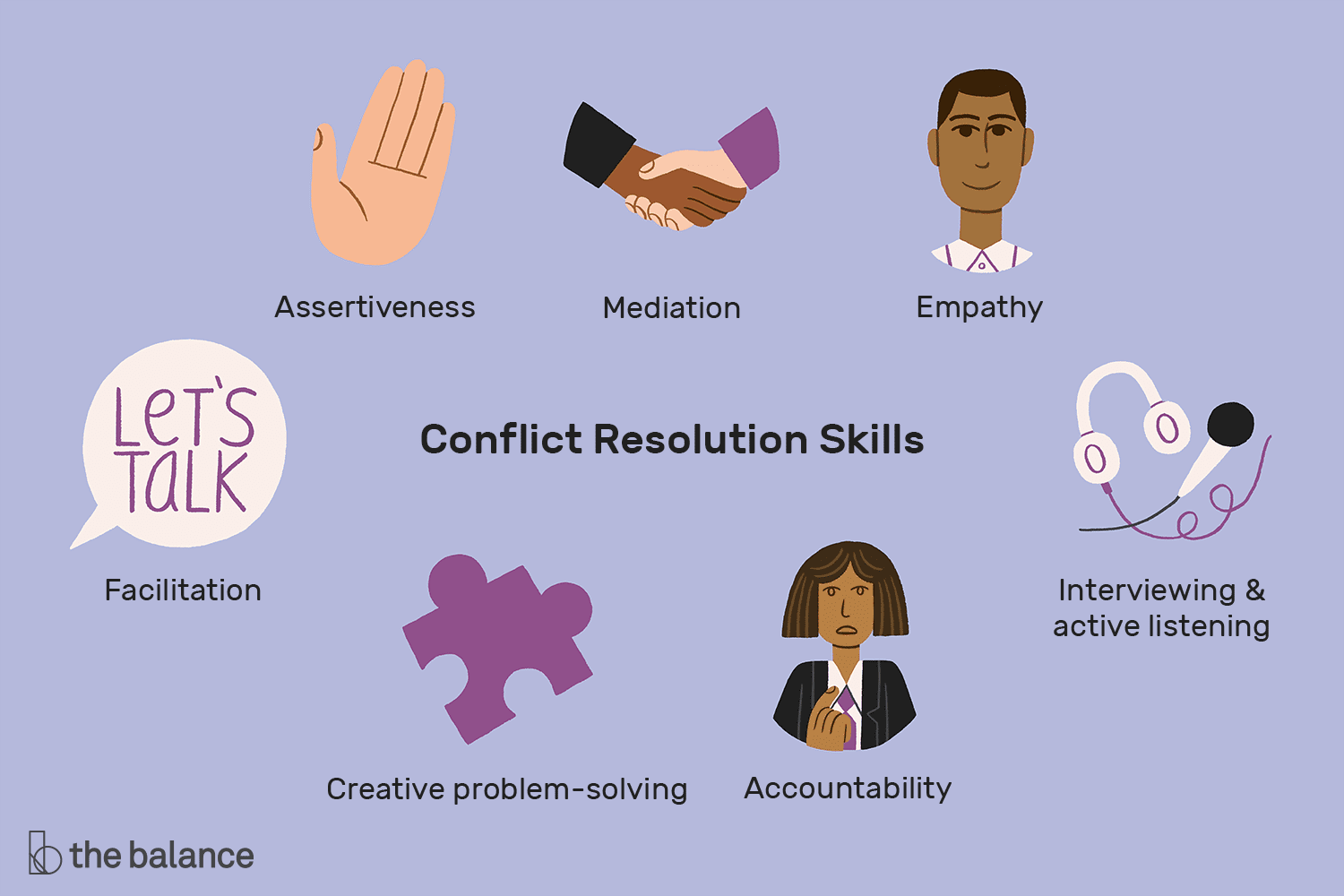
Assertiveness
Speaking of understanding your own needs … having good interpersonal skills means that you’re an excellent listener. But on the other side of the table, it means that you’re open and transparent about your own reckons, feelings, needs, and ideas too.
The key to strong relationships is finding balance, and that planneds all parties gratifying one another in the middle( that’s arbitration !).
Teamwork
How well do you work with others? Do people experience being put one across an job with you, or do they all roll their hearts?
This is a big deal when you’re in the workplace or another environment where it’s critical to collaborate with others. To has become a good team player, you need to combine all the other interpersonal skills we’ve talked about.
Leadership
The strongest chairmen has already been of the skills we’ve discussed so far.
Interpersonal leader skills mean 😛 TAGENDListening to your crew and colleaguesTruly understanding where they’re coming fromBuilding trust through idiosyncrasies like fortitude and dependabilityBeing forceful in demo them the move you want them to follow, but deterring the feedback curve open for ceaseless growthWorking through challenges and projects in a manner that ascertains a common ground for everyone involvedHow to Improve Interpersonal Skills
Here are a few tips on your direction to developing excellent interpersonal skills.
1. Ask for constructive feedback
Before you can work on developing interpersonal skills, you need to know where you’re mis. The best channel to find this out is to go straight from the people closest to you: your colleagues, boss, friends, and family.
One approach is to show them the interpersonal skills list from above, and asking questions which ones you’re great at, and which ones could use some work.
Here’s the catch: you should be aware of your own interpersonal skills when you try this. Keep your subconsciou open to feedback. Try not to be offended or take it personally.
You WILL hear things you don’t want to hear. But that’s the whole point of the practice!
2. Practice active listening
Like I has already mentioned, if you want to improve interpersonal skills, you have to be a better listener.
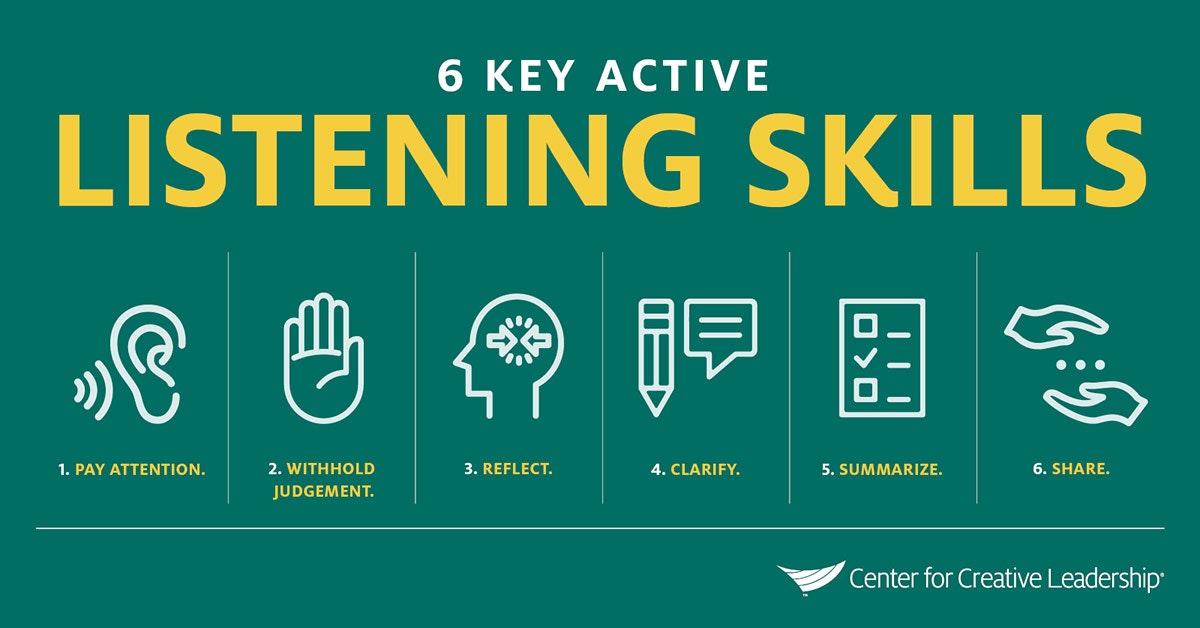
Here are six steps to practice active listening.
Pay notice when someone else is talking. Don’t slash them off before they’re finished. To make sure you’re not edit them off, waiting a second or two when they stop to make sure they’re really done. Make eye contact and avoided twitching or multi-tasking, which is a non-verbal way of depicting them you’re really listening.Don’t adjudicator them or steamroll them with your own ideas. Keep an open imagination and be willing to see another person’s point of view. You’re not always right!( And “even if youre”, you’ll need to collaborate and compromise anyway .) Reflect on what they might be trying to say and what they’re feeling. If your colleague says,” I don’t know what to do about this ,” you can reflect by saying,” It sounds like you’re feeling lodge .” Clarify anything that’s uncertain or disorient by asking as many questions as you need to. You can say something like:” Let me make sure I’m hearing you …” Summarize what they’ve said by paraphrasing and repeating it back to them. This route, you can be 100 percent certain that you understand their times and reasons in the way they planned. Share your own conceives- after you’re particular they’re done talking and that you’ve understood them properly. There’s a tender match: you want to communicate your own conceptions, while supporting the other person and working to solve the issue at the same time. 3. Get in touch with your own feelings
Developing interpersonal skills means that you need a better understanding of others, but it also necessitates having a better understanding of yourself.
When you understand your own emotional responses and triggers, you’re better able to control them when you’re working closely with other people.
Digging even deeper, you’ll find that understanding your own feelings might automatically improve your ability to empathize with others and put yourself in their position.
And when you’re being assertive and communicating your own dreams, feelings, and doctrines, you can do it waaaaay more easily and effectively.
There’s an awesome article in Harvard Business Review that can help you understand your spirits. Here are the three main tips 😛 TAGENDExpand your vocabulary of passions. Different ardours have differing ” flavors .” The more texts you consider, the better you’ll be able to navigate the small differences.
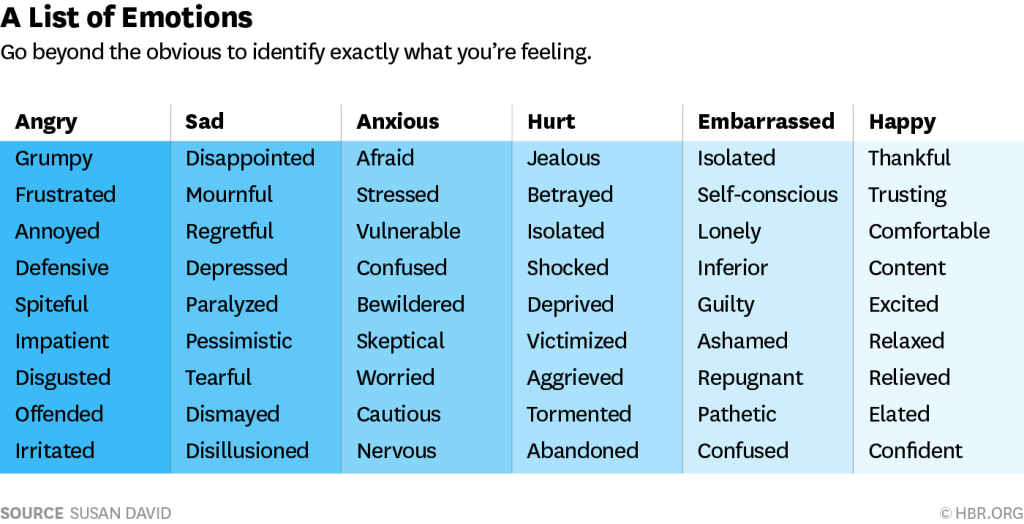
Consider how intense each sensation is. Are you feeling seriously unfortunate, or merely thwarted? You can even rate them 1-10 on their intensity.Write about it. Set a timer for 20 minutes and explore something you’re feeling strongly. Try to reflect and learn by exerting terms like “I’ve learned” and” Now I recognize .” 4. Find a instructor or enroll in a course
If you’re struggling with developing interpersonal skills, there are lots of opportunities for you to find more direct and involved help.
This one can feel a little bit vulnerable, but you can always try reaching out to a close friend, own family members, colleague, or peer who has excellent interpersonal skills. See if they’d be willing to help mentor you and give you tips-off, suggestion, and strategies.
You can also try searching for a professional coach or take an online course.
Just do a speedy Google search to browse your options and see what works for your planned, learning preferences, and budget.
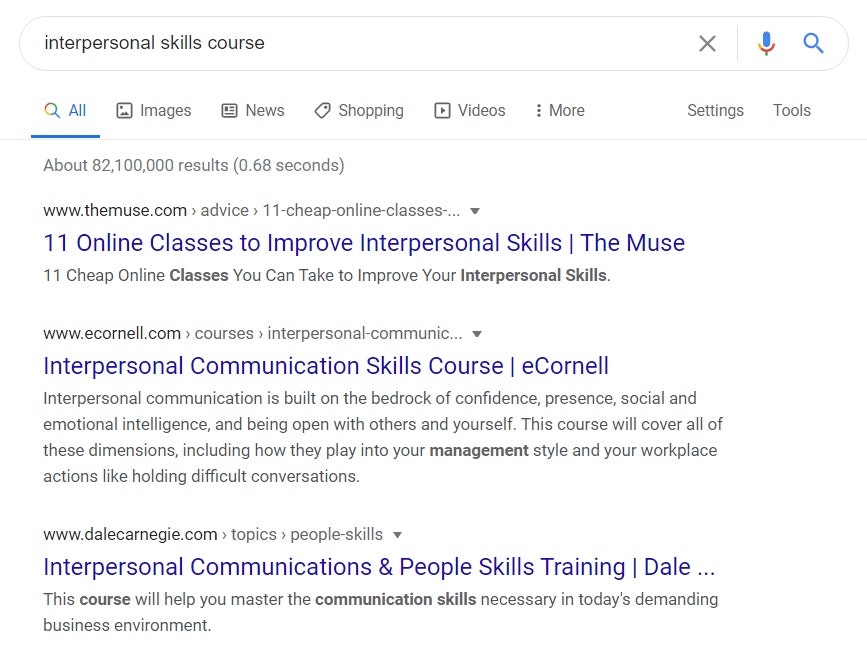
Don’t forget to search for same terms like 😛 TAGENDEmotional intelligence courseSoft skills trainingPeople knowledge courseBetter communication trainingThe Path to Better Relationships
Whether you’re dealing with your coworker or your uncle, interpersonal relationship sciences are absolutely critical if you require things to go smoothly. They’re always at work in the background, even if you’re not paying close attention.
But if you want to understand and improve them, it’s time to start looking closer.
Think about all the personal and professional relationships in your life and how you can improve them. And if you’re looking for a racket right now, consider the appropriate means that these sciences can help you land your dream position or help you fit into your workplace better.
Even if you don’t have the natural endowment of effortless interactions, there’s always something you can do to improve your interpersonal skills.
Want to Learn More? 10 Business Skills All Entrepreneurs Need to Develop in 2021Productivity Music to Concentrate and Focus (8 Best Playlists )20 Passive Income Ideas That’ll Make You Money While You SleepHow To Develop Laser Focus: 6 Tips for the purposes of an Unstoppable Mindset
Read more: oberlo.com




